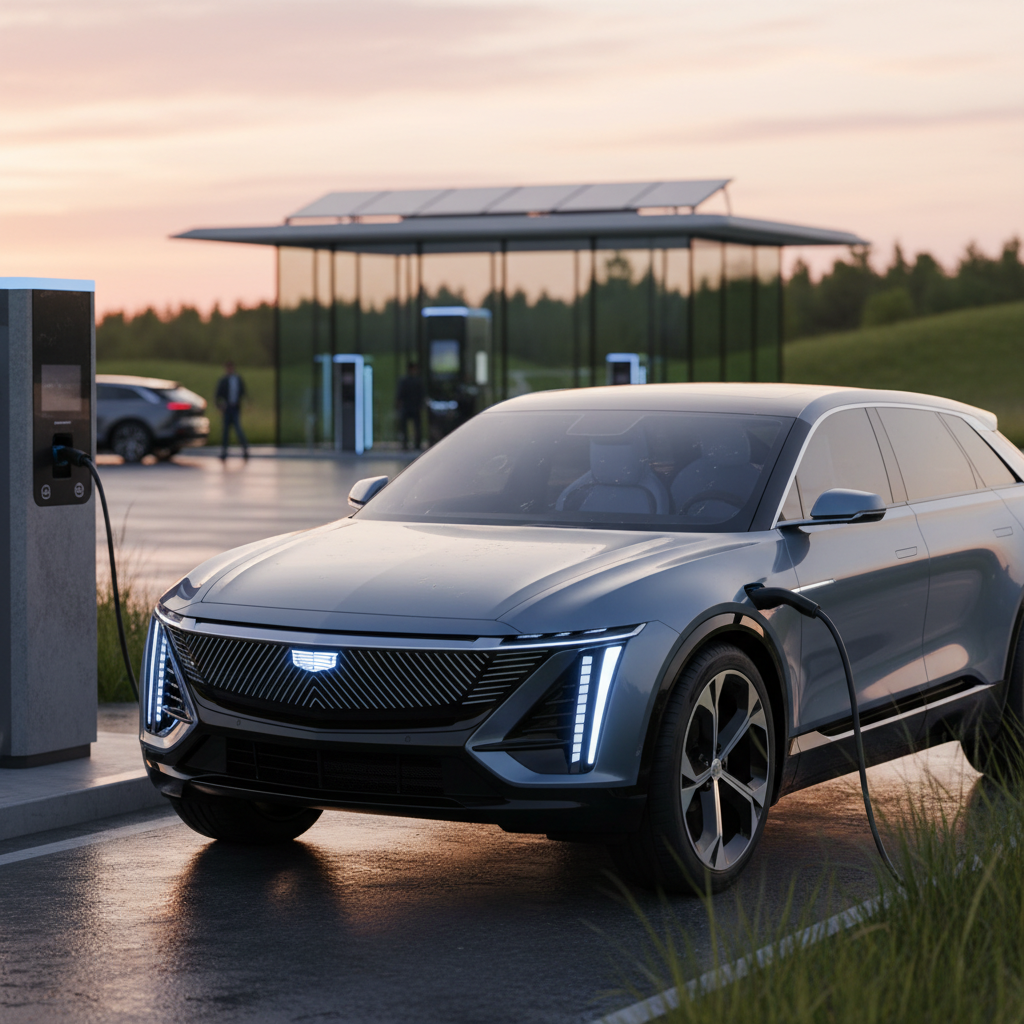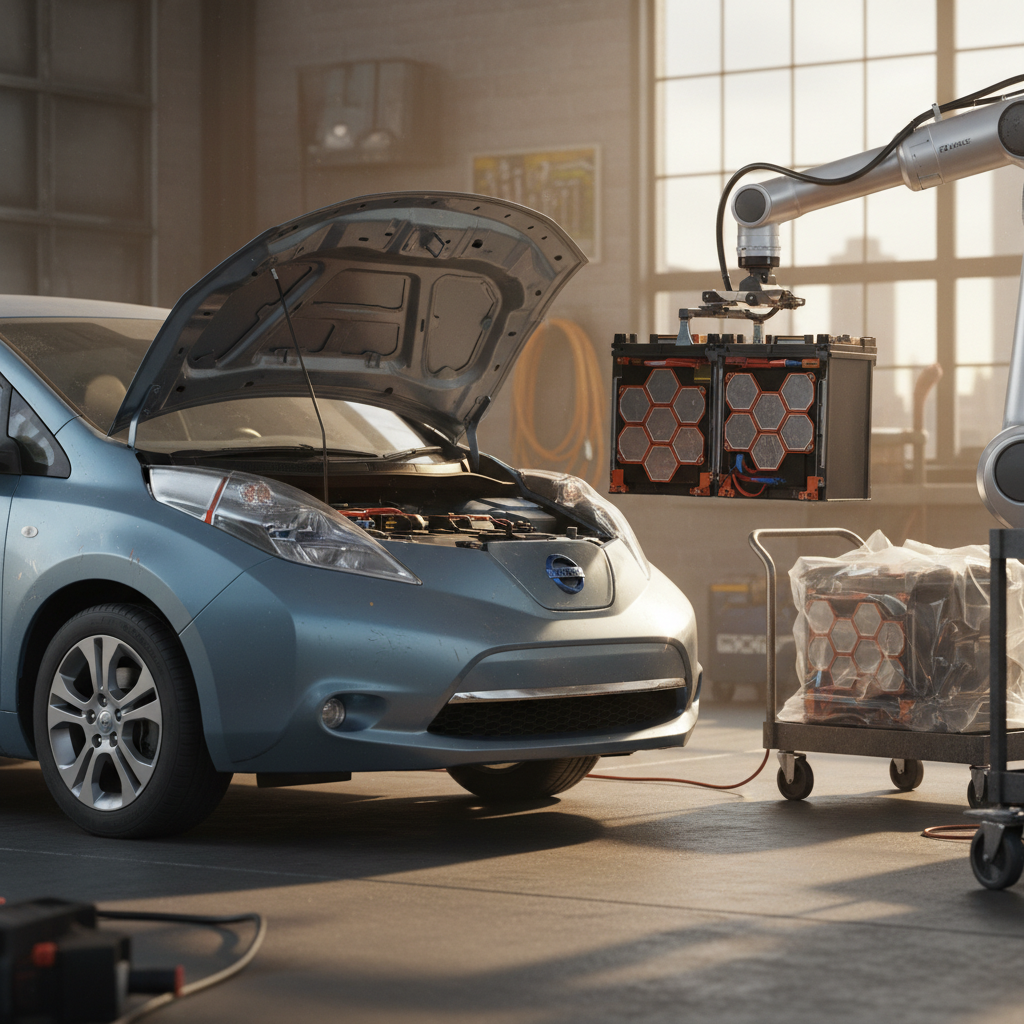When people say electric vehicles are cheaper to run, they’re really talking about one thing: cost per mile. Once you know your electric vehicle cost per mile, you can compare it directly to your current gas car, budget confidently, and decide whether a new or used EV actually makes financial sense for you.
At a glance
Why electric vehicle cost per mile matters
Car shopping used to be all about sticker price and monthly payment. With EVs, you also need to know what it costs you every mile you drive. That’s where electric vehicle cost per mile comes in, it turns kilowatt-hours and fuel prices into a number that feels like real life: the cost of your commute, your kid’s carpool, or your holiday road trip.
What cost per mile helps you decide
Three big questions this single number can answer
1. Can I actually save money?
By comparing EV cost per mile vs gas, you can see if switching cuts your daily driving costs or just shifts them around.
2. Which EV fits my driving?
Different models use different energy per mile. Cost per mile lets you compare a compact hatchback to a big electric SUV on equal footing.
3. Does used make more sense?
Used EVs often have lower purchase prices. Understanding cost per mile helps you balance lower payments with battery age and range.
Think in trips, not just miles
How to calculate electric vehicle cost per mile
The good news: you don’t need a spreadsheet or an engineering degree. Calculating electric vehicle cost per mile comes down to two numbers: how much you pay for electricity and how efficient your EV is.
- Find your local electricity rate on your utility bill. Look for the line that says something like “$0.15 per kWh.”
- Find your EV’s efficiency rating. New EVs in the U.S. list this as “kWh per 100 miles” on the window sticker or “mi/kWh” in the car’s display.
- Use one of the simple formulas below to get your EV cost per mile.
Formula A: Using kWh per 100 miles
If your car lists kWh/100 mi (common on EPA labels), use:
Cost per mile = (Electricity price per kWh × kWh per 100 miles) ÷ 100
Example: Electricity is $0.15/kWh and your EV uses 28 kWh/100 mi.
- 0.15 × 28 = $4.20 for 100 miles
- $4.20 ÷ 100 = $0.042 per mile
Formula B: Using miles per kWh
If your car or app tells you mi/kWh, use the flip side:
Cost per mile = Electricity price per kWh ÷ miles per kWh
Example: You average 3.5 mi/kWh and pay $0.16/kWh.
- 0.16 ÷ 3.5 = about $0.046 per mile
This is handy because you can plug in real numbers from your own driving, not just the official rating.
Watch your units
Typical U.S. cost per mile in 2025 (ballpark)
Real-world EV cost per mile examples
Let’s put some rubber on the road with three real-world style examples: a compact EV, a family crossover, and a big electric pickup. Numbers will vary by model, but these scenarios show how electric vehicle cost per mile actually plays out.
Sample EV cost per mile at home rates
Illustrative scenarios using realistic 2025 electricity prices and efficiency figures. Your exact numbers may differ, but the pattern is what matters.
| Scenario | Electricity rate | Efficiency | Cost per mile (energy only) |
|---|---|---|---|
| Compact EV commuter | $0.13/kWh | 25 kWh/100 mi | $0.033 |
| Family SUV, mixed driving | $0.18/kWh | 32 kWh/100 mi | $0.058 |
| Full-size electric pickup | $0.15/kWh | 45 kWh/100 mi | $0.068 |
Home charging makes the biggest difference, especially for larger, less efficient EVs.
What about climate and driving style?

Electric vs gas cost per mile in 2025
To see whether an EV actually saves you money, you need to look at electric cost per mile vs gas cost per mile using the prices in your area. Here’s how the math compares at typical 2025 U.S. prices.
Step 1: Cost per mile for your gas car
You only need two numbers:
- Your average price per gallon (say $3.75)
- Your car’s mpg (say 28 mpg)
Cost per mile = Price per gallon ÷ mpg
Example: $3.75 ÷ 28 ≈ $0.13 per mile.
Step 2: Compare to your EV
From earlier, say your EV costs $0.05 per mile on home charging. That means:
- Gas: about $0.13 per mile
- EV: about $0.05 per mile
Drive 1,000 miles a month and you’re looking at:
- $130 in gas vs $50 in electricity, about $80/month saved
Where used EVs really shine
Factors that change your EV cost per mile
No two EV owners pay exactly the same cost per mile. The math is simple, but the inputs move around based on where you live, how you drive, and how often you fast charge.
Six levers that move your cost per mile
Some you control, some you just plan around
1. Electricity price
Your local cents per kWh is the biggest driver. Home off-peak rates can cut cost per mile dramatically versus public fast charging.
2. Driving speed
Highway speeds and aggressive acceleration use more energy per mile. That’s why your road trip cost per mile is usually higher than your city commute.
3. Weather & climate
Cold weather hits range and efficiency, especially on short trips. Heating the cabin and battery both raise kWh per mile.
4. Vehicle size & shape
Aerodynamic, lighter EVs sip energy; big, boxy SUVs and trucks use more. Same story as gas cars, the larger the vehicle, the higher the cost per mile.
5. Charging mix
A driver who charges 90% at home will have a much lower average cost per mile than someone relying mostly on DC fast charging.
6. Tires & extras
Oversized tires, roof racks, and cargo carriers all add drag and weight. Not deal breakers, just small nudges to your cost per mile.
Fast charging is like premium gas, use when it matters
Used EVs, battery health, and cost per mile
If you’re shopping used, cost per mile isn’t only about electricity, it’s also about how much useful driving you get out of the battery you’re paying for. Battery health determines range, charging behavior, and how long the car stays practical for your lifestyle.

How battery health affects cost per mile
- A healthy pack means more range per charge, so you can use more of the battery you’re paying to charge.
- Degraded batteries may still be cheap to “fill,” but they give you fewer miles per charge, which raises your effective cost per mile.
- Extreme degradation can push you into more frequent fast charging, which is more expensive per kWh.
Why objective battery data matters
On a used EV, odometer readings and service records don’t tell the whole story. You want to know:
- How the battery has actually aged
- Whether range loss is in a normal band
- If there are signs of unusual abuse
That’s why every vehicle on Recharged comes with a Recharged Score Report, including verified battery health diagnostics so you’re not guessing about the biggest factor in a used EV’s long-term cost per mile.
Cost per mile isn’t just about fuel
How to lower your EV cost per mile
You can’t control everything, none of us sets the utility rates, but you have more influence over your electric vehicle cost per mile than you might think. Focus on the big levers first, then tweak the smaller ones.
Practical ways to cut your EV cost per mile
1. Shift as much charging home as possible
Even if you pay average residential rates, home charging is usually cheaper than public Level 2 and much cheaper than fast charging. If you rent, ask about installing a 240V outlet or look for smart 120V options for overnight charging.
2. Use off-peak or EV-specific rates
Many utilities offer discounted overnight rates for EVs. Program your car or home charger to start automatically when prices drop, you’ll lower your cost per mile without changing your routine.
3. Right-size your vehicle
If you don’t need a three-row SUV or a full-size truck, a smaller used EV can deliver dramatically lower cost per mile. You pay less to buy it and less to move it down the road.
4. Mind your speed on the highway
Jumping from 65 to 80 mph can take a big bite out of efficiency. On long drives, a slightly calmer pace often saves you both time at chargers and energy cost.
5. Keep tires properly inflated
Underinflated tires increase rolling resistance, which quietly raises your cost per mile and hurts range. A quick monthly check is cheap insurance.
6. Start with solid battery health
When buying used, prioritize vehicles with documented battery health. That’s one of the easiest ways to protect both your daily range and your long-term cost per mile.
Let financing and fuel work together
Quick checklist: Estimate your own EV cost per mile
If you want a back‑of‑the‑envelope answer before you even test‑drive an EV, run through this quick exercise. It works whether you’re still driving gas today or already have an EV and want to sanity‑check your numbers.
5‑step personal cost-per-mile estimate
1. Grab your latest utility bill
Find the line that shows your total price per kWh, including fees and taxes. If your rate changes by time of day, note the off‑peak EV rate too.
2. Pick an EV and note its efficiency
Look up the EPA rating for the model you’re considering, focus on <strong>kWh/100 miles</strong> or <strong>mi/kWh</strong>, not just range or MPGe.
3. Plug the numbers into the formula
Use the simple formula from earlier: electricity price × kWh per 100 miles, then divide by 100. That’s your <strong>EV cost per mile</strong> on home charging.
4. Compare with your current gas car
Take your usual price per gallon and divide by your mpg to get your gas cost per mile. Now compare the two numbers head‑to‑head.
5. Multiply by your real mileage
Estimate how many miles you actually drive each month and multiply. The gap between EV and gas per month is often more motivating than the per‑mile numbers alone.
EV cost per mile: Frequently asked questions
Common questions about electric vehicle cost per mile
The bottom line on electric vehicle cost per mile
Electric vehicle cost per mile isn’t a mystery once you break it down. Take your electricity price, pair it with your EV’s efficiency, and you’ve got a clear, honest number you can stack against your gas car. For most drivers who can charge at home, that number is dramatically lower than what they’re used to paying at the pump.
Where things get really interesting is when you combine lower energy cost per mile with a smartly priced used EV. With transparent battery health data and fair market pricing, you can trade high fuel and maintenance bills for a predictable payment and cheaper everyday driving. That’s exactly what Recharged was built for: helping you understand the true cost of going electric, per mile, per month, and over the years you’ll own the car.



